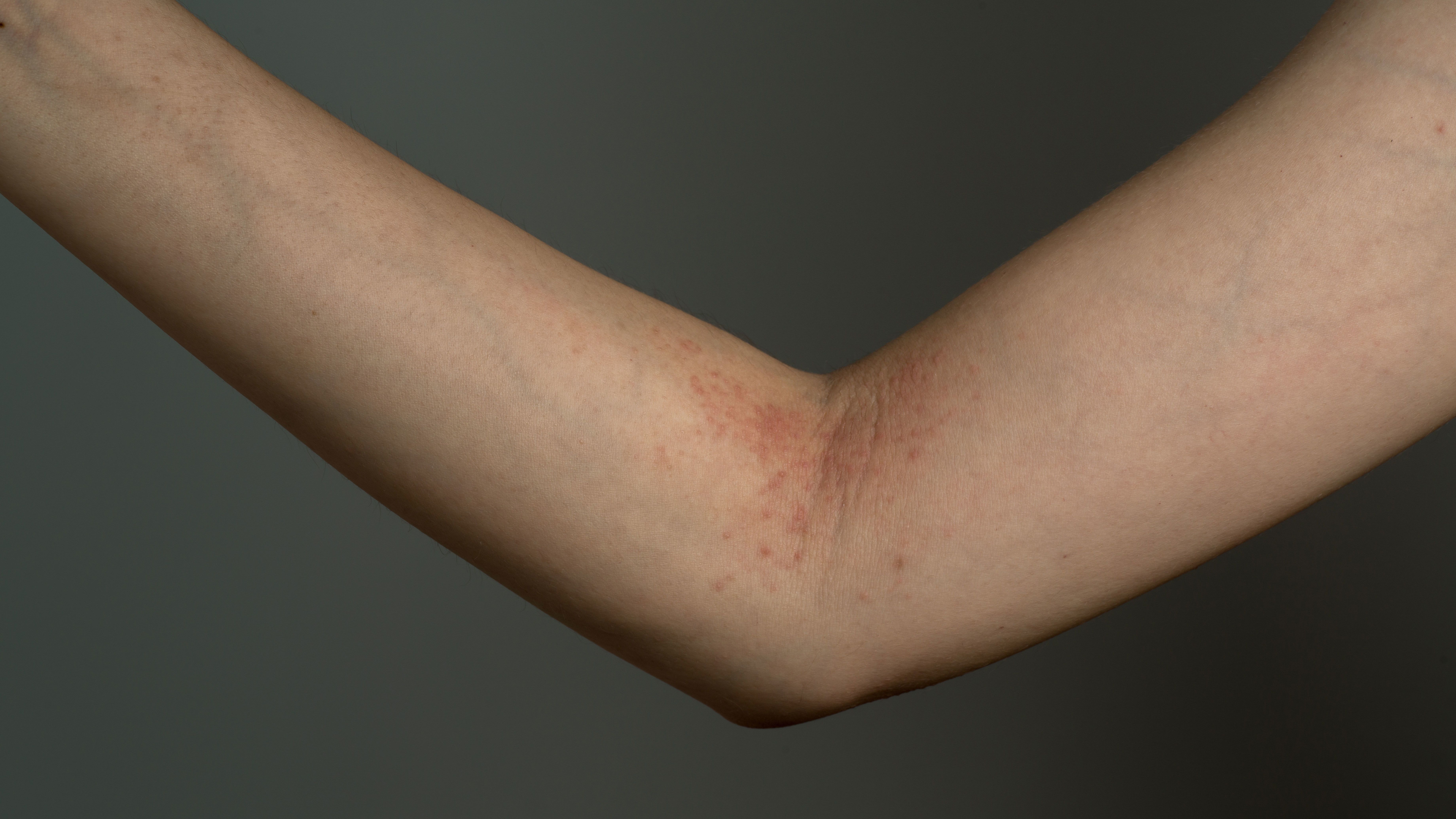Updated on July 10, 2023
A major focus for anyone managing atopic dermatitis is identifying and avoiding triggers—anything that can cause symptoms to flare up or worsen. Reducing stress, using fragrance-free soaps and cleansers, and wearing clothes made of 100 percent cotton (as opposed to rough fabrics like wool) are all examples of avoiding triggers. These are also examples of triggers that a person has some degree of control over.
In other cases, triggers are something that a person will have little or no control over. For example, the weather.
Why does weather affect atopic dermatitis?
While the exact cause of atopic dermatitis is unknown, medical researchers do have a good understanding of what’s happening in the skin when a person has atopic dermatitis.
An important concept to understand is barrier function. This refers to the skin barrier, the ability of the skin to protect the body from the outside environment—for example, by keeping out irritants, allergens, and germs.
When a person has atopic dermatitis, the skin barrier does not function normally. It’s less effective at keeping out things that cause irritation and inflammation. It’s also less effective at retaining moisture, which contributes to the dryness, inflammation, and itching that a person experiences when they have atopic dermatitis. This is sometimes referred to as skin barrier dysfunction.
What types of weather can affect atopic dermatitis?
Hot and cold temperatures, humidity levels, allergens, air quality, and sun exposure can all impact barrier function and contribute to atopic dermatitis symptoms:
- Cold temperatures. Exposure to cold (especially cold and dry) environments can pull more moisture from the skin, making the skin more prone to becoming dry and itchy.
- Hot temperatures. Heat causes the skin to sweat, which helps keep the body cool and prevent the body from overheating. However, in many people who have atopic dermatitis, sweating may exacerbate symptoms. This is believed to be the result of abnormal sweat gland function.
- Low humidity levels. Dry air and low humidity can strip more moisture from the skin, making skin barrier dysfunction worse, making the skin more prone to dryness and irritation, and making a person more likely to experience a flare.
- High humidity levels. Higher humidity combined with warm temperatures can increase sweating. Humid, damp environments can also promote the growth of mold and dust mites, potential triggers.
- Allergens. Allergens can trigger atopic dermatitis symptoms, and seasonal weather changes can affect the allergens present in an environment (for example, tree pollen in the spring and ragweed in the fall).
- Wildfire smoke. Air pollution may also contribute to worsening atopic dermatitis symptoms. One example is wildfires, which typically occur in seasonal patterns and are influenced by weather conditions. Lower quality air has been associated with an increase in dermatologist visits—and the conclusion from this is that more people with conditions like atopic dermatitis require medical care when air quality is low due to wildfire smoke.
People with atopic dermatitis should also be mindful of sun exposure. Many people with atopic dermatitis find that sun exposure improves symptoms. However, it’s important to wear sunscreen and avoid too much exposure. Sunburn is damaging to the skin and will often lead to worse symptoms.
Is weather making your atopic dermatitis symptoms worse?
Keeping a journal is one way to help determine what may be affecting your atopic dermatitis symptoms. Use a journal to record your symptoms and the factors that may be influencing your symptoms. This can include the day’s activities, places you go, what you eat, and the weather. It should also include notes on how you feel overall—did you get enough sleep, were you able to follow your skincare schedule, was it a stressful day? Entries do not need to be detailed to provide useful information for you and your healthcare providers.
If you are not already keeping a journal, consider starting one. If you are already keeping a journal, consider writing down numbers for temperature, humidity level, allergens, and air quality index.






